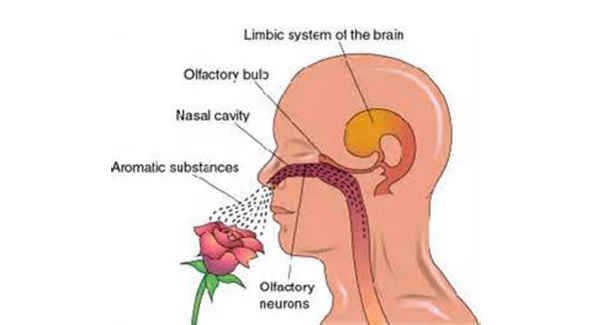Traumatic brain injuries can put a heavy strain on you and your family. You can suffer a loss of work and normal activities that you once may have enjoyed. It can take time to recover from an injury and having safeguards in place can help make sure that you will have a speedy recovery. In this article, you will know that Can a TBI cause you to lose a sense of smell.
Some kinds of injuries including skull fractures, facial fractures, and concussions can be the cause of brain injuries. The effects can be permanent or short-term depending on the type and extent of brain damage. It is possible to recover from this type of injury and it will require patience. There are several challenges for individuals that find themselves affected by TBI. Can a TBI cause you to lose a sense of smell?
What Can Cause a TBI?
Usually, there is some sort of heavy trauma associated with TBI such as a violent blow to the head or jolt to the body. Objects like bullets can cause brain injury as well as several types of accidents. Bleeding and physical damage are common in serious traumatic brain injury and medical care is needed when this injury is sustained.
Some common incidents where brain injury occurs can be from vehicle collisions when there are auto accidents. Violent gunshot wounds from assaults and other attacks are another way to sustain damage. Falling on hard surfaces is a typical way to get brain damage. Sports injuries can be traumatic enough to cause serious damage. Any kind of event where there is a heavy impact can potentially cause brain damage injuries.
How TBIs Damage the Senses
The sense of smell and taste are deeply connected so when there is a heavy brain injury these senses are commonly affected. Depending on what parts of the brain are affected will determine if the sense of smell is lost. There are certain parts of the brain that are responsible for the functioning of the senses such as taste and smell. The orbitofrontal cortex is a part of the brain that controls taste and smell. When it is damaged there can be a loss of senses.
There are reports of people with TBI having as high as 25 percent loss of taste and smell after traumatic brain injury. Injury to the nose and nasal passages can be a part of this. Olfactory nerve damage leaves the sense of smell impaired. There is a risk that the individual will not recover from this.
TBI and Sense of Smell
When you suffer brain trauma or head trauma these can affect your sense of smell and change how you register this sense. This condition is called anosmia. The result is the loss of olfactory functions making odors imperceptible. Both minor and major brain damage can be enough to cause this sort of damage. Without a sense of smell noticing gas leaks or toxic chemicals can pose a safety risk. Another effect can be loss of appetite from not being able to smell food.
There are functions of the brain that can be impaired that are controlled by areas close to these regions. This means that if smell and taste are damaged there could be other areas affected. The results can be emotional problems such as depression, aggressive behavioral problems, apathy, and general feelings of unconcern. It is important to address these issues after suffering from a TBI.
Recovery
It is possible to recover a sense of smell after a TBI. Some 30% of affected people have been shown to recover over time. It can happen within 6 to 12 months. Chances are better for recovery in mild and less traumatic cases. Working with qualified health professionals will help you in your recovery process.
Seeking legal action
If you have suffered in an accident and have a brain injury, contact the law offices of Stephenson Rife in Shelbyville IN today to discuss details of how we might represent you. Our qualified attorneys have many years of experience dealing with these kinds of cases. We can help to determine when you have a TBI case and what is needed to build a solid case.









